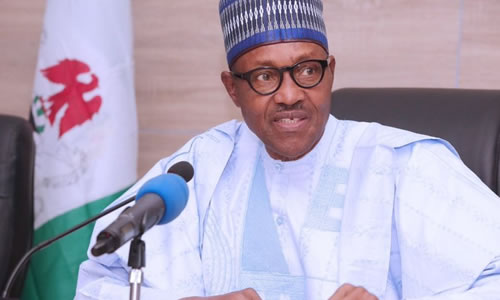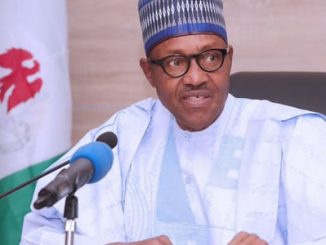
The United Nations (UN) and a growing campaign of calumny against Nigeria and Africa
by Adeyemi Ishola
In the recent past, some international organisations, including agencies of the United Nations, have been issuing some reports whose parameters are unknown and whose outcomes raise a lot of doubt, for those who have knowledge of the issues in focus. Take for instance the recent pronouncement that Nigeria has overtaken India as the country with the largest number of people living below the poverty line. Credible indicators or parameters which formed the basis of the conclusion of the UN were not provided, nor was the UN available to face questions on this controversial report.
Those conversant with the socio-economic situation of both Africa and Asia wonder at how the UN arrived at such a conclusion. This is because the number of people in India living below the poverty line in 2016 when the current government in New Delhi came to power was put at 270,000,000 (Two Hundred and Seventy Million) by the World Bank (precisely in an information released on May 27 2016). That is at least 72 million people more than the entire Nigerian population. Yet the UN made an announcement in December 2018—less than four years after that report, that Nigeria had overtaken India as the country with the highest number of people living below the poverty.
The strange thing about that pronouncement was that some people and institutions in Nigeria including some sections of the media began proclaiming it as well without interrogating its basis and assumptions. Indeed, this attitude is no different from the way some react to the announcement or publication of reports and declarations on aspects of Nigeria’s socio-economic situation by largely foreign agencies many of which may not even be credible. While there is absolutely no doubt that poverty may have increased in Nigeria given recent economic challenges, the fact remains that the quantum leap announced by the UN beggars belief and is unbecoming of an organisation of the composition, orientation and objectives of the UN.
Contrary to what obtained in Nigeria, in India, intellectuals and the political elite were as shocked as some others outside the country by the UN announcement. Many recall that up until his election four years ago, Prime Minister Narendra Modi of India had inherited a country that provided at least half of the problems that the Millennium Development Goals (MDGs) were designed to tackle. In effect it meant that if the UN successfully resolved most of those problems in India, the MDGs would qualify as a success globally and the international community could transit confidently to the Sustainable Development Goals (SDGs). The announcement by the UN that India had cleared the challenges identified in the MDGs became extremely controversial in India and subjected the UN report to great controversy. Nonetheless, the UN stuck to its report. It is against this background that its recent announcement of Nigeria overtaking India as the country with the most poverty-stricken population is also being viewed by those conversant with these developments.
This leads some to wonder at how the UN is allowing itself to be used to issue extremely controversial reports and statistics meant to undermine Nigeria as it were. They also wonder at how come all negative indices today are being ascribed to Africa, paradoxically at a time when it is globally accepted that Africa’s combined economies have been growing at reasonably impressive rates over the past 15 years or more, leading many other continents and large countries to institute a rash of summits with Africa, ranging from the China-Africa Summit, to the India-Africa Summit, to Europe-Africa Summit and with the ascent of President Trump to power, the institution of the US-Africa Summit as well. While it is clear that there is a new scramble for the wealth of the continent and a desire by others to slow down the seemingly favourable status China enjoys with the continent, it is also very clear that Africa is the next El dorado and everyone wants to occupy a prime position from which to cash in on a booming economic situation that is unfolding.
Against this backdrop, the targeting of Africa through trying to paint Nigeria, its biggest economy, in bad light is as puzzling as it is inexplicable. Surprisingly, the UN has been unrelenting. An indicator of this is its recent announcement that Nigeria is set to overtake India as the country with the highest number of people defecating in the open. Again, this is a spurious assertion, as culturally, most Nigerian ethnic groups abhor such practice, unlike in some parts of Asia where it is culturally considered as a taboo to locate a toilet in your house as that would make the building spiritually unclean. This was what led Prime Minister Modi to declare during his campaign four years ago (described in Hindi as “Swachh Bharat”) that as a matter of priority, he was going to build 2 million toilets if elected. While Mr Modi has greatly improved the situation in India by building “over 80 million toilets” (according to Government, and not independent sources), neutral investigations paint a completely different picture.
According to RICE (the Research Institute for Compassionate Economics), it surveyed 3,235 households in four Indian States north of the country in 2014 and 2018 and found open defecation had come down by 26% over those four years following Mr. Modi’s “Swachh Bharat.” Access to household toilets shot up from 37% in 2014 to 71% in 2018. However, it submitted further that “access to toilets” did not mean that open defecation had ended, because it found out that “23% of those who own a toilet continue to defecate in open, including in States that had been declared defecation-free.” Two important things here are that, the baseline figure was not given (i.e. how many Indians, out of 1.3 billion, defecate in the open, in order to be able to accurately calculate the number that would now no longer be indulging in the practice). What is not in doubt is that open defecation is a culturally-sanctioned practice in India, which suggests that a significant part of the population indulged in it; hence Mr. Modi’s determined effort to nip it in the bud.
That the UN would apparently use Indian government figures (not independently-verifiable ones) to now suggest that another country (in this case Nigeria, where it is largely culturally taboo to indulge in such practice) has overtaken the former in this practice is shocking and suggestive of a negative agenda against Nigeria and the African continent. It calls the intention of the UN to question and casts significant aspersion on the integrity of UN staff that made this questionable submission. That the Nigerian government and people themselves never rose to challenge this dangerous policy direction of the world body is totally unbelievable!
As if the above were not enough, the UN is wont to continuously emphasise that the number of children out of school in Nigeria, put at a romantic figure of 10 million (without any baseline statistics or verifiable parameters), is the highest in the world! Again, not a few Nigerian media organisations, NGOs (too lazy to conduct their own research or scientifically interrogate those figures) and others who choose to cite the said figures to gain political and other advantages (without consciously considering the collective damage such act is doing to us all as Nigerians), continue to peddle it with glee. Nigeria surely has a large number of children out of school, largely due to the Boko Haram insurgency in the north east and in some other parts of the country for other reasons. However, how many are these children? Are they 10 million? What is the entire population of the north-east, such that it would account for the largest number of this so-called 10 million?
What is not in doubt and is clearly verifiable, is that Nigeria, out of a population of 190 plus million, has at least 40 million in primary and Junior Secondary Schools (JSS) across the 36 States and the FCT, and has had, for the past five years or more, 1.7 million candidates qualified to go to university every year (based on verifiable JAMB figures of registered candidates, with Imo State consistently accounting for the highest of this over the past few years). Can the UN subject its own 10 million figure of out-of-school children to any verifiable indicators?
In conclusion, it is extremely worrisome that the UN is embarking on a seemingly systematic process of bad marketing Africa and Nigeria, including on health issues. Yet there is nowhere in Africa for example, where in any one season, a population will be bombarded by the outbreak of four major diseases made up of Chikungunya, H1N1, Dengue and Malaria all at the same time, even in the few war-torn contexts that we still have today on the continent. Yet this combination of diseases occurs with monotonous regularity in some other continent annually, but such continent is never subjected to the type of campaign of calumny that Africa is being subjected to. It is high time the UN re-examined the conduct of some of its staff in its key institutions who seem bent on transferring to Africa, such phenomena that either do not exist, or occurs in lower numbers but that are being intentionally exaggerated for reasons no intelligent person can fathom. African governments, media and civil society should also make it a habit from now on of interrogating figures and submissions made by international organisations and NGOs about their countries and continent in order to put an ignominious end to the release of such spurious statistics.
– Adeyemi Ishola is a public affairs analyst



Leave a Reply